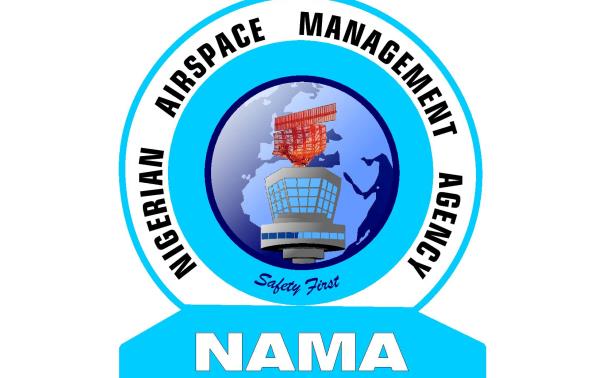Telecom
NAMA Partners NIGCOMSAT to Expand Its Satellite-based Navigation System

To further improve safety in Nigeria’s airspace, save money for airlines and give precise guidance to pilots, the Nigerian Airspace Management Agency (NAMA) is collaborating with the Nigerian Communications Satellite Limited (NIGCOMSAT) to expand its satellite-based navigation system known as Satellite Based Augmentation System (SBAS).

According to NAMA, the expansion will not just cover Nigeria’s airspace, but the whole of Africa airspace, which will improve precision for landing and take-off for pilots.
NIGCOMSAT is a company under the supervision of the Federal Ministry of Communications and Digital Economy, responsible for the operation and management of Nigerian Communications Satellites.
Matthew Pwajok, the Acting Managing Director of NAMA, explained during the SBAS flight demonstration at the Nnamdi Azikiwe International Airport, Abuja on Wednesday, that the Satellite Based Augmentation System means pilots using satellite systems to navigate their aircraft in the airspace.
Pwajok further explained that it would use equipment not based on the ground to guide flights, but based on satellite systems to navigate, which is akin to what NAMA had installed years ago, which is the Performance Based Navigation (PBN).
He however said with NIGCOMSAT satellite, it would cover broader airspace, from Nigeria to other regional airspace that could serve the African region and beyond.
“Some years ago, Nigeria implemented what we call Performance Based Navigation, which is a satellite system for navigation and what it does is to use satellite-base system with an aircraft equipped with performance system to navigate or to fly.
“When the aircraft uses that with ground procedures that are developed with flight procedure design, it enables it to manoeuvre, approach and land.
“It can also be used for en-route whereby you provide air routes, so that after take-off, it follows what we call a standard aircraft departure that is based on satellite. That is using a satellite to develop manouvres for an aircraft for take-off to climb to the en-route phase.
“When it reaches the en-route phase, when you have an air route based on satellite it continues with the same satellite system to also fly from one point to the other. So the satellite-based navigation system covers all phase of flight,” Pwajok said.
He also explained that performance based navigation provides the pilot with lateral guidance and improves accuracy, the integrity, the availability and continuity of the signal for the pilot.
“So what is now required is to put a ground infrastructure, a monitoring system, a control system or a master station that receives signals from several satellites, triangulate them and take the best location or find a space induction or signal and now broadcast it through a broadcast media worldwide or globally and it will be reviewed by any aircraft that is flying within that vicinity and use it now for more precision.
“So, we have done performance base navigation that provides general lateral guidance for pilots to locate airports. We now want to improve on it to do what we call precision approaches,” Pwajok also explained.
He disclosed that the system has been in use in Europe, the US and other parts of the world and Nigeria had embraced the system through NAMA performance based navigation but now wants to expand the system in collaboration with NIGCOMSAT.
Since the new satellite system from NIGCOMSAT covers the African airspace, NAMA is collaborating with Agency for Aerial Navigation Safety in Africa and Madagascar (ASECNA), which provides airspace management services to French speaking countries in West Africa and beyond, including 16.1 million square kilometres of airspace covering six Flight Information Regions – Antananarivo, Brazzaville, Dakar Oceanic and Terrestrial, Niamey and N’Djamena.
“Our sister agencies from ASECNA states are also here. Europe is here, America is here and so on. In collaboration with International Civil Aviation Organisation (ICAO), we are all going to monitor and see.
When we are able to see that the signal has transmitted, received, augmented and re-transmitted, it can guide aircraft precisely, an improved accuracy, an improved landing, approved takeoff and climb, then we will be able to now say yes, we can work towards implementation like the rest of the world. So the satellite-based navigation system is a very important milestone,” Pwajok said.
Telecom
Airtel Recommits to Fraud Prevention after NCC’s N104m Fine for SIM Registration Breaches

Airtel Nigeria has restated its commitment to transparency, customer safety, and regulatory collaboration following recent regulatory enforcement by the Nigerian Communications Commission (NCC).

The NCC had served Airtel Nigeria a notice of sanction over some alleged SIM infractions in Kano State and consequently slammed a fine of N104 million on the telecommunications firm.
NCC had in a letter, addressed to Airtel Nigeria Chief Executive Officer, dated May 26, 2025, signed by Chizua Whyte, head, Legal and Regulatory Services, and Mohammed Dari, acting head, Compliance Monitoring and Enforcement, on behalf of Dr Aminu Maida, executive vice chairman, NCC, titled: ‘Notice of Sanction: Non-Compliance with SIM Registration Directive in Kano,’ where the infractions were spelt out.
According to NCC, Airtel infractions include unauthorised SIM registrations using 198 unapproved devices, resulting in 8,275 registrations outside the 281 verified Airtel shops; premature activation of 63 MSISDNs prior to proper SIM registration, contrary to the provisions of the Registration of Communications Subscribers Regulations 2022; failure to conduct effective eyeballing, leading to 407 fraudulent SIM registrations with multiple NINs, contrary to the provision of the Registration of Communications Subscribers Regulations 2022 and failure to provide satisfactory explanation for SIM registrations conducted between 12.00 a.m and 6.00 a.m.
On the matter, the letter revealed that there were some letter exchanges and subsequent meetings on the infractions between the telecom regulator and Airtel, starting from January 12, 2025, March 19, 2025, March 24, 2025, and March 27, 2025, respectively.
Apparently, after investigations and responses from Airtel, the NCC was not satisfied and this led to the fine of N104 million, which was to be paid within seven days from the date the letter was issued.
Specifically, NCC fined Airtel N5 million, N12 million, N81.4 million and N5 million for the infractions respectively.
Reacting, Airtel, expressed appreciation to the NCC for uncovering the infractions, describing the development as a critical opportunity to strengthen internal processes and further align with national security and regulatory expectations
“We thank the NCC for its vigilance and continued support in protecting the integrity of the telecoms ecosystem. Airtel takes these findings seriously and is already implementing corrective measures,” a spokesperson for the company said.
Only recently, Airtel Nigeria’s CEO recently announced that the company is doubling its investment in the country, focusing on network expansion, fiber-to-the-street rollout, 4G/5G deployment, customer care upgrades, and digital infrastructure security.
These investments reinforce Airtel’s long-term vision of building a resilient and forward-looking telecom network that meets the evolving needs of Nigerians.
“Our systems are constantly evolving to stay ahead of scammers and malicious actors,” the spokesperson added. “This is not just about compliance; it’s about our responsibility to the millions of Nigerians who rely on Airtel daily.”
Airtel Nigeria says it will continue to work closely with the NCC and other arms of government to ensure high standards of service and safety for all telecom users nationwide.
Telecom
Kenya Beats Nigeria As the Most Progressive ICT Regulation in Africa

Kenya is celebrating its regulatory ecosystem being ranked as the most progressive in Africa. The International Telecommunications Union (ITU) has ranked the East African country first in its most recent ICT Regulatory Tracker.

ITU’s ICT Regulatory Tracker is an evidence-gathering tool for decision-makers and regulators. It demonstrates the effectiveness of regulatory systems in the age of technology.
The ITU evaluates the design of the national regulatory authority, the scope of the regulatory mandate, the obtaining regulatory environment, and the robustness of the competition framework in member countries.
Kenya received 93 points, up from 92 in 2023, and now leads the continent in best practices for ICT regulations.
Nigeria and South Africa finished second and third, with 92 and 88 points respectively. Malawi, Egypt, Rwanda, Morocco, Uganda, Burkina Faso, and Senegal complete the top 10 list.
Globally, Kenya was ranked 20th out of 194 countries covered.Italy led the rankings, with 100 points.
The regulator, Communications Authority (CA) of Kenya, said the achievement underscored Kenya’s commitment to creating a robust, technology-neutral regulatory environment that supports innovation, affordability and access.
Steve Isaboke, permanent secretary for broadcasting and telecommunications, visited CA Centre in Nairobi following the announcement on Thursday.
“The ranking is a clear testament of the excellent work that CA has done in spearheading Kenya’s digital transformation and driving digital access for all,” he said.
“After 25 years, CA’s regulatory regime has attained maturity, and gained global recognition. This ranking shows that the CA staff and leadership are executing their work diligently.”
Telecom
MTN’s Female Leadership Surges to 41.4%, Doubles Industry Average

MTN Nigeria Communications PLC has announced a significant increase in female representation within its leadership, with women now making up 41.4% of its workforce, a notable rise from 38.7% in 2023.

This figure reportedly doubles the industry average, positioning MTN Nigeria as a frontrunner in gender diversity within Nigeria’s ICT sector.
The company’s recently released 2024 Annual Report highlights its sustained commitment to workplace inclusion and gender equality, aligning with its “Ambition 2025” strategy. Female representation within the executive management team has reached approximately 46.7%.
MTN Nigeria attributes this progress to dedicated initiatives aimed at empowering women professionally. These include the “Women in Tech” programme, which provides targeted upskilling in high-demand fields such as Cloud Computing, Software Engineering, AI/ML, Data Science, and Cyber Security.
The “MTN Y’ello Mums Internship Programme” also supports young mothers in their transition back into the corporate world after career breaks.
Odunayo Sanya, executive director of the MTN Foundation, was recognised as the CSI Personality of the Year at the Nigeria Tech Innovation & Telecoms Awards (NTITA), further underscoring the company’s impactful social initiatives.
Additionally, Uto Ukpanah, the company secretary, received the inaugural Global Corporate Secretary of the Year Award from the Corporate Secretaries International Association (CSIA).
Speaking at a recent conference, Odunayo Sanya, emphasised the importance of balancing profitability and sustainability equation, saying, “Businesses today need to be purpose-driven. While the soul of business is profitability, it is not profitability alone that should matter to stakeholders.”
Uto Ukpanah, added, “Showcasing our corporate values and ethos to the world opens the door for greater collaboration with other organisations, as we believe there’s a lot to learn when we all come together. Governance continues to evolve. The challenges today are not the same as they were 10 years ago. Greater accountability is expected, and companies can only continue to do better.”
The company’s broader efforts in diversity and inclusion have been acknowledged with multiple accolades, including the Corporate Responsibility Award. MTN Nigeria also received the “Employer of the Year” award at the 4th Edition of the Nigeria Employers’ Consultative Association (NECA) Employers’ Excellence Awards.
Karl Toriola, CEO of MTN Nigeria, in the report, reiterated the company’s commitment to building a purpose-driven organisation, emphasising that its success is intrinsically linked to its people and their dedication to a shared vision.
“Since we initiated our culture transformation journey in 2021, our culture transformation has significantly enhanced employee engagement and organisational cohesion. It’s directly strengthened our ability to deliver outstanding business performance and drive sustainable long-term value for all our stakeholders.”

 Telecom3 days ago
Telecom3 days agoTelcos Threaten to Disconnect Banks over Misinformation on New USSD Charges

 Telecom3 days ago
Telecom3 days agoMTN Nigeria Plans N900Bn in Service Upgrade

 General News3 days ago
General News3 days agoJumia Marks 13 Years of E-Commerce Innovation and Impact in Nigeria

 Telecom3 days ago
Telecom3 days agoTelecom Regulators in Africa Chart New Course for a Data-driven Future

 Broadcasting3 days ago
Broadcasting3 days agoNetflix Hikes Subscription Fees Again in Nigeria over “Market Conditions”

 News3 days ago
News3 days agoAbbas Jega, Ex-AMCON ED, Testifies, Says Arik Never Cooperated With AMCON

 Broadcasting3 days ago
Broadcasting3 days agoNBC, Nigcomsat Launch Satellite Plan to Transform Broadcasting

 E-Financial3 days ago
E-Financial3 days agoNDIC Calls for Inputs to IADI Core Principles for Effective Deposit Insurance


















